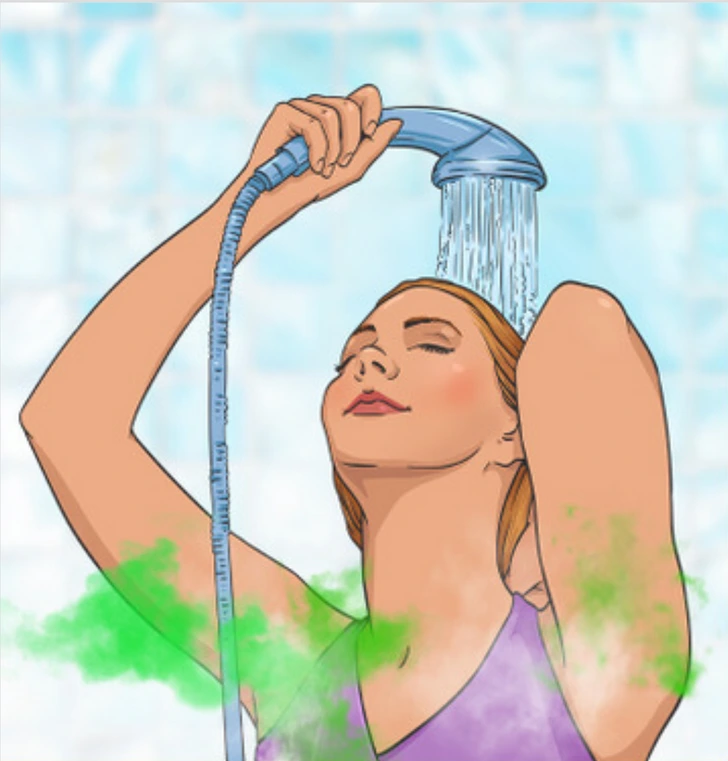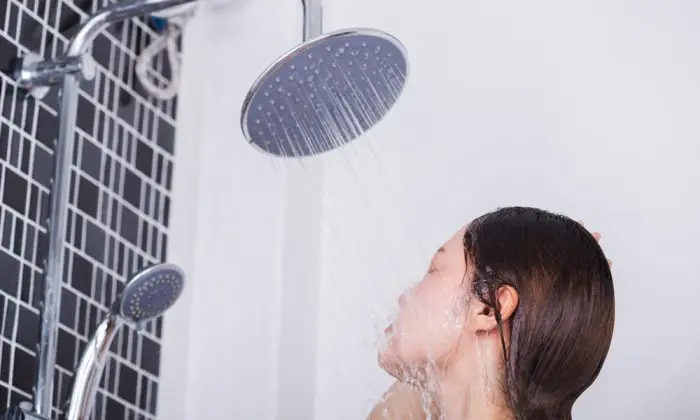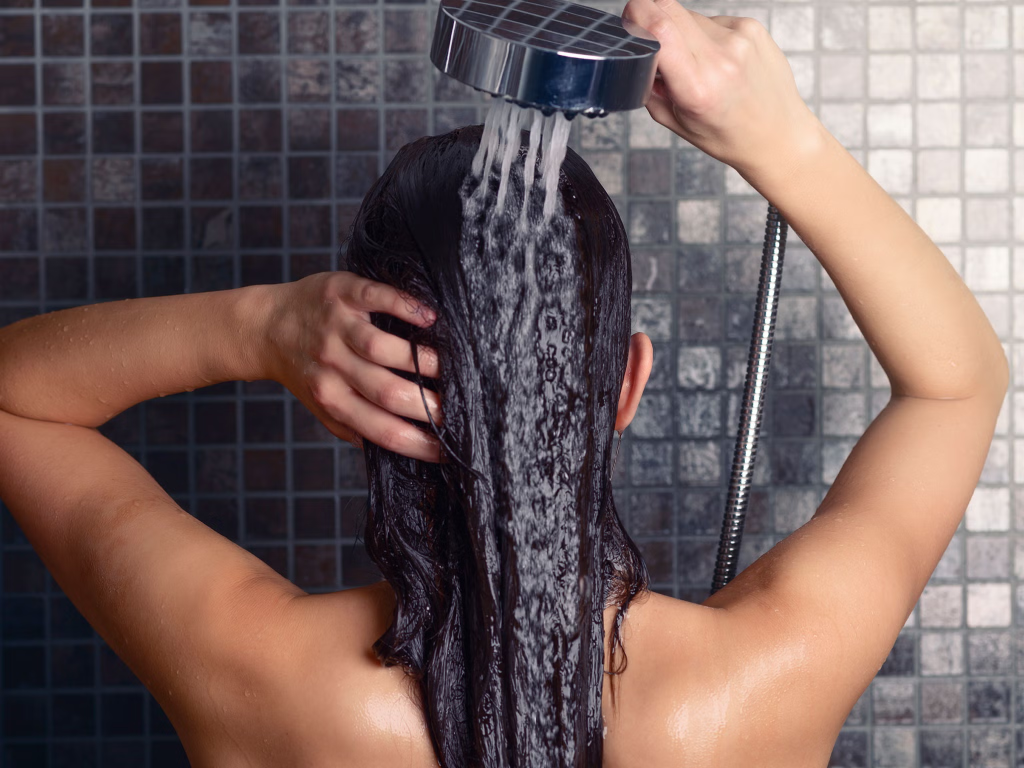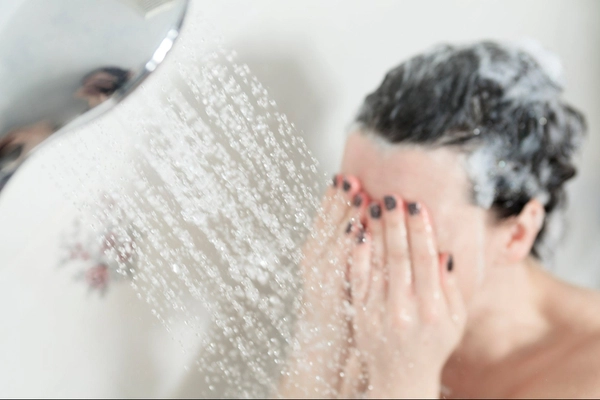With endless aisles of body wash, shampoo, and soap lining store shelves, it’s easy to assume daily showers are a must for good health. But how often do we actually need to shower? Recent insights from health experts suggest the answer may not be as straightforward as we’ve been led to believe.

Our skin—our body’s largest organ—covers roughly 1.5 to 2 square meters of surface area. It plays a critical role as a protective barrier, helping maintain internal balance while shielding us from environmental threats. So, it makes sense that we want to keep it clean. But how much cleaning is too much?
Challenging the Daily Shower Routine
Dr. James Hamblin, a physician specializing in public health and preventive medicine, set out to answer this question in a surprising way. Curious about hygiene norms and the real science behind them, Hamblin drastically reduced his personal shower habits—for nearly five years.
Video:
How Often Do You Really Need to Shower?
As detailed in his book, Clean: The New Science of Skin, Hamblin didn’t completely stop bathing but adopted a minimalist approach. “I carefully wrote in the book that five years ago I stopped—and I did,” he said in a conversation with CNN. “That doesn’t mean I never showered again. But I was experimenting with different routines, different products, and gradually doing less.”
His goal? To better understand what our skin truly needs—and what’s simply driven by habit or marketing.
Marketing Has Shaped Our Hygiene Habits
Walk into any pharmacy or supermarket and you’ll find rows of products promising cleaner, healthier skin. But Hamblin argues that most of these items carry a “health halo”—suggesting benefits that may be more cosmetic than clinical.
“If you look closely,” he explains, “many personal care products are designed not to prevent disease, but to make us smell better or feel fresher.”

Soap, for instance, can be helpful for breaking down oils and removing visible dirt. But according to Hamblin, the act of physically rubbing skin with water—called mechanical cleansing—is often enough to maintain everyday hygiene, especially for people not exposed to high-risk environments like food service or healthcare.
What About All Those Microbes on Our Skin?
One of Hamblin’s biggest takeaways from his research was the importance of the skin microbiome—a vast, living ecosystem of microbes that plays a crucial role in maintaining skin health. Like our gut microbiome, this network of bacteria and microorganisms serves as a bridge between our internal systems and the outside world.
When we overwash—especially with harsh soaps or hot water—we can disrupt this balance. “There’s a harmony between the oils your skin naturally produces and the microbes that live on your skin,” Hamblin explains.
Frequent, aggressive cleansing strips the skin of its natural oils and dries it out, which not only affects texture and appearance but also alters the environment in which healthy microbes thrive. This can be especially problematic for people prone to conditions like eczema, acne, or other inflammatory skin issues.

Hamblin likens the process to clear-cutting a forest: you may be removing the surface layer, but you’re also damaging the foundation that supports long-term health.
Cleanliness vs. Hygiene: What’s the Difference?
One of the key insights Hamblin shares is the distinction between hygiene and cleanliness—two terms that are often used interchangeably, but actually mean very different things.
Hygiene, he explains, is primarily about preventing disease transmission. This includes:
- Washing hands after using the bathroom
- Avoiding contact with bodily fluids
- Sneezing into tissues or elbows instead of hands
These practices help limit the spread of bacteria and viruses, especially in public or shared environments.
On the other hand, cleanliness is more personal and often rooted in cultural, social, or psychological expectations. Showering every day from head to toe, for example, isn’t a medical requirement—it’s a personal choice.

“There’s a huge psychological component to cleanliness,” Hamblin says. “Feeling clean can boost confidence, mood, and a sense of renewal. But it doesn’t always correlate directly with better health.”
Are We Overdoing It? The Skin Science Says: Maybe
In today’s health-conscious world, there’s increasing awareness about gut health and the role of probiotics. Hamblin suggests a similar shift is starting to happen with skin care. “People are beginning to realize that the skin is covered in trillions of microbes, and they matter,” he says.
Research shows that over-sanitizing or over-cleansing can disrupt this fragile balance, leading to dryness, sensitivity, and flare-ups. For many, cutting back on full-body showers and focusing instead on targeted hygiene—like washing the face, underarms, and groin—may be more than sufficient.
Video:
What If We Stop Bathing? – Importance Of BATHING
This doesn’t mean skipping hygiene altogether. It means reevaluating what’s essential and what’s simply habit or marketing influence.
Who Should Shower More Often?
Of course, there are exceptions. People who:
- Engage in intense physical activity
- Work in high-risk environments
- Have skin conditions requiring specific medical treatment
- Live in hot, humid climates
…may benefit from more frequent showers. But even in these cases, dermatologists often recommend using gentle, non-stripping cleansers and lukewarm water to minimize damage to the skin barrier.
How Often Should You Shower?

There’s no one-size-fits-all answer. For the average person in a temperate climate with a relatively sedentary lifestyle, showering every other day or even a few times a week may be perfectly adequate.
Instead of focusing on how often you shower, experts recommend prioritizing:
- Handwashing (especially before eating and after using the restroom)
- Maintaining clean clothes and linens
- Listening to your skin—if it feels dry, tight, or irritated, scale back
Final Thoughts: Rethinking Clean in a Modern World
The bottom line? Our understanding of hygiene and cleanliness is evolving. What once seemed like an unquestionable daily ritual—showering head to toe with multiple products—may not be necessary for everyone.
By learning more about how our skin functions, embracing its natural microbiome, and choosing products wisely, we can support healthier skin without overdoing it. Clean doesn’t have to mean scrubbed raw or covered in fragrance—it can mean balanced, cared for, and in sync with what our body actually needs.
As Dr. Hamblin discovered through his five-year experiment, sometimes doing less can lead to better outcomes—for your skin, your wallet, and even your mental well-being.


